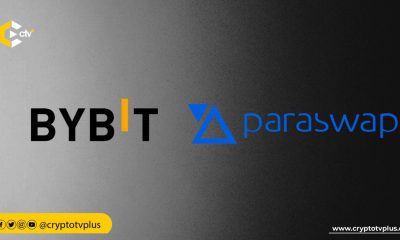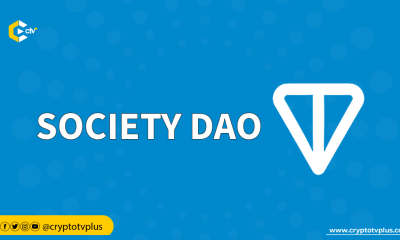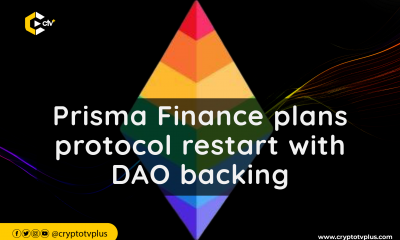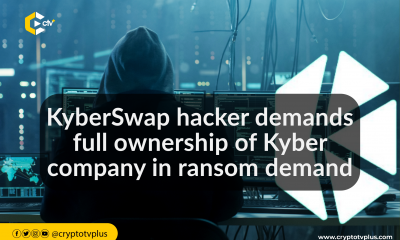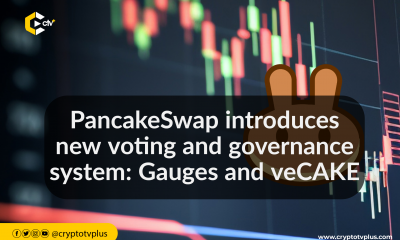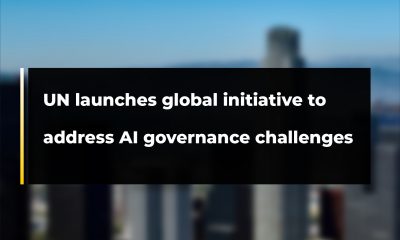FEATURED
Challenges of Decentralized Decision-Making: Are DAOs Truly Decentralized?
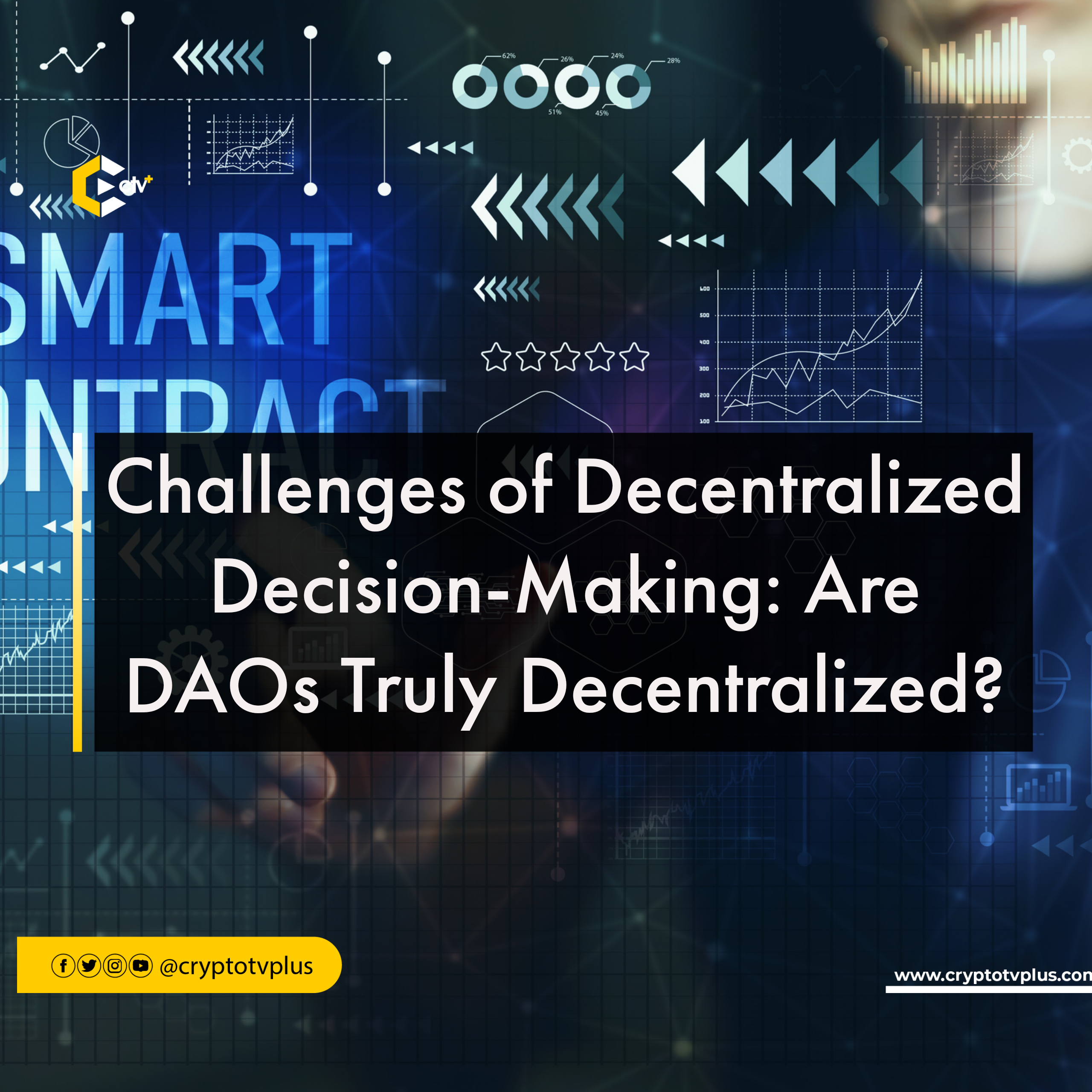
Decentralized Autonomous Organizations (DAOs) have gained immense popularity in the crypto industry in recent years. These organizations are touted as a way to create a democratic and decentralized decision-making process, free from the control of any central authority or individual. However, there are concerns that DAOs may not be as decentralized as they claim to be.
In this article, we will explore the concept of decentralization in DAOs and examine whether they truly live up to their promise of being decentralized.
What is a DAO?
DAOs are self-governing organizations that operate through a decentralized system. They are built on blockchain technology and are run by smart contracts, allowing for decision-making to be made through a consensus mechanism. This allows the community to make decisions, rather than a central authority.
Decentralization is a critical aspect of DAOs, as it ensures that decision-making is not controlled by a small group of individuals with disproportionate voting power. Instead, it allows for a fair and democratic decision-making process, giving equal voting rights to all members.
To understand whether DAOs are truly decentralized, we need to examine their governance mechanisms, voting power distribution, the role of token holders, and potential for centralization.
Governance mechanisms
DAOs have a set of rules and procedures that define how decisions are made. These mechanisms can vary depending on the type of DAO, but they generally involve voting on proposals submitted by members. These proposals can be related to governance, finance, or other matters related to the organization.
- Voting power distribution
In DAOs, voting power is usually determined by the number of tokens held by a member. This means that members with more tokens have more voting power than those with fewer tokens. While this seems fair in principle, it can lead to a concentration of power in the hands of a few members with a significant number of tokens.
- Role of token holders
Token holders play a critical role in DAOs, as they are the ones who make decisions through voting. However, it’s important to note that not all token holders are active participants in the decision-making process. Many token holders simply hold tokens as a means of investment, without actively participating in the governance of the organization.
But despite the best intentions of DAOs to be decentralized, there is always the potential for centralization. For example, a small group of members with a significant number of tokens could collude to make decisions that benefit themselves, rather than the community as a whole.
Challenges to Decentralization
While DAOs strive for decentralization, several challenges can hinder this goal.
- Coordination and communication: Decentralization can create coordination and communication challenges. With members located all over the world, it can be difficult to ensure that everyone is on the same page and has access to the same information.
- Sybil attacks and manipulation: Sybil attacks and manipulation can also be a concern in DAOs. A Sybil attack occurs when a single user creates multiple identities, thereby gaining more voting power than they should have. This can be detrimental to the democratic decision-making process.
- Governance capture: Governance capture occurs when a small group of individuals gains control of the decision-making process, often to benefit their own interests. This can lead to centralization, which is antithetical to the goals of DAOs.
Case Studies
To better understand the concept of decentralization in DAOs, we will examine a few case studies
Case Study 1: The DAO Hack
One of the most infamous cases of DAO failure is the hack of The DAO in 2016. The DAO was a decentralized autonomous organization built on the Ethereum blockchain, which aimed to provide a decentralized venture capital fund. It was intended to be governed by its members through a decentralized decision-making process, where members could propose and vote on investment opportunities.
However, in June 2016, an attacker exploited a vulnerability in the code of The DAO’s smart contract, allowing them to drain approximately one-third of The DAO’s funds, worth around $50 million at the time. This was a clear example of governance failure in a DAO, as the decentralized decision-making process was not effective in preventing this attack.
After the hack, there was a heated debate within the Ethereum community about how to address the issue. Some argued that the funds should be returned to investors, while others believed that the hack was a result of poor code and that investors should take responsibility for their decisions. Ultimately, the Ethereum community decided to hard-fork the blockchain, creating a new chain that would return the stolen funds to investors.
This incident highlights the importance of security and risk management in DAOs. Organizations must have robust security measures in place to prevent attacks and ensure the safety of members’ funds. Additionally, organizations should have contingency plans in place in the event of a hack or other security breach. In the case of The DAO, the hard fork was a controversial decision that led to a split in the Ethereum community, highlighting the need for clear guidelines and procedures for handling governance failures.
Lessons Learned
The DAO hack provides several key lessons for organizations considering using DAOs for decentralized decision-making:
– Security and risk management should be a top priority.
– Contingency plans should be in place for governance failures or security breaches.
– Clear guidelines and procedures should be established for handling governance failures.
– Decentralized decision-making processes may not always be effective in preventing attacks or failures.
– Community consensus is important in deciding how to handle governance failures.
Case Study 2: OlympusDAO Bank Run
In November 2021, OlympusDAO, a decentralized autonomous organization that provides a stablecoin called OHM, experienced a bank run that caused the price of OHM to plummet by over 90% in just a few hours. The bank run was triggered by a large sell-off of OHM tokens by a group of anonymous whales, causing panic among investors and leading to a rush to sell OHM tokens.
The cause of the bank run was a complex combination of factors, including concerns over the sustainability of OHM’s economic model, a lack of transparency in the decision-making process of the DAO, and a perceived lack of responsiveness to community feedback. The bank run exposed flaws in the governance and decision-making processes of the DAO, as well as the risks associated with investing in decentralized financial protocols.
After the bank run, the OlympusDAO community took swift action to address the issue. They implemented a series of measures to stabilize the OHM price, including a buyback program and the creation of a new governance token, OLY, which would be used to incentivize holders to stay invested in OHM. Additionally, the DAO took steps to improve transparency and communication with the community, including the release of a detailed economic report and the establishment of a community council to represent the interests of OHM holders.
Lessons Learned
The OlympusDAO bank run provides several key lessons for organizations considering using DAOs for decentralized decision-making:
– Governance and decision-making processes should be transparent and responsive to community feedback.
– Risk management and contingency plans should be in place to address potential crises.
– Decentralized financial protocols are inherently risky, and investors should be aware of the potential for volatility and sudden price movements.
– Community engagement and participation are crucial for the success of a DAO, and community members should have a voice in decision-making processes.
– DAOs can recover from crises and implement measures to stabilize the situation and restore confidence.
Case Study 3: Poly Network Hack
In August 2021, Poly Network, a decentralized cross-chain protocol, was the victim of a hack that resulted in the theft of approximately $600 million worth of cryptocurrency. The hack was a clear example of a failure in DAO governance, as the attacker was able to exploit vulnerabilities in the protocol’s smart contract code and manipulate the decentralized decision-making process to transfer the stolen funds to their own wallets.
After the hack, the Poly Network community worked together to track down the attacker and recover the stolen funds. The community also implemented a series of measures to improve the security and resilience of the protocol, including the establishment of a bug bounty program and the implementation of additional security audits and testing.
The Poly Network hack highlights the risks and challenges of decentralized finance and the importance of robust security measures and risk management in DAO governance. It also illustrates the potential for decentralized communities to work together to recover from crises and address governance failures.
Lessons Learned
The Poly Network hack provides several key lessons for organizations considering using DAOs for decentralized decision-making:
– Security and risk management should be a top priority in DAO governance.
– Robust measures should be in place to prevent attacks and minimize the impact of security breaches.
– Transparency and openness in decision-making processes can help prevent governance failures and security breaches.
– Community engagement and participation are crucial for the success of a DAO, especially in the event of a crisis.
– DAOs can recover from governance failures and security breaches, but it requires a concerted effort from the community and the implementation of effective measures to improve security and resilience.
Case Study 4: The DAO Maker Token Sale
In December 2021, The DAO Maker, a decentralized platform for fundraising and community building, conducted a token sale that was marred by accusations of vote manipulation and unfair practices. The sale was designed to distribute tokens to members of the DAO Maker community, with the number of tokens received based on a combination of factors including the amount of DAO Maker tokens held, the level of community engagement, and the number of referrals.
However, shortly after the sale began, several members of the community raised concerns about vote manipulation and unfair practices, including the use of bots and fake accounts to inflate referral numbers and unfairly distribute tokens. The DAO Maker community was divided over the issue, with some members calling for the sale to be cancelled or delayed, while others argued that the sale should continue as planned.
Despite the controversy, the token sale ultimately proceeded as planned, with the distribution of tokens based on the controversial voting results. The incident highlighted the risks associated with decentralized decision-making and the challenges of ensuring fairness and transparency in DAO governance.
Lessons Learned
The DAO Maker token sale provides several key lessons for organizations considering using DAOs for decentralized decision-making:
– Governance processes should be designed to prevent vote manipulation and ensure fairness and transparency.
– Robust measures should be in place to detect and prevent the use of bots and fake accounts in voting processes.
– Community engagement and participation are crucial for the success of a DAO, but the potential for manipulation and unfair practices should be carefully managed.
– Controversies and disagreements within the DAO community can have a significant impact on the success of the project, and efforts should be made to address and resolve these issues in a transparent and fair manner.
– DAOs should be open to feedback and willing to adapt and evolve their governance processes in response to changing circumstances and community needs.
Case Study 5: Uniswap Governance Vote
In November 2021, Uniswap, a decentralized exchange, conducted a governance vote to determine the allocation of funds from the protocol’s treasury. The vote was supposed to be decided by the community, with each participant having one vote. However, it was discovered that one individual held more than 39% of the voting power, putting them in a position to potentially sway the outcome of the vote in their favour.
The situation quickly garnered attention and criticism from the wider crypto community, with many questioning the decentralization of the Uniswap protocol and the fairness of the governance process. The Uniswap team responded by acknowledging the issue and committing to address the concentration of voting power in future governance votes.
Despite the controversy, the vote ultimately proceeded as planned, with the outcome reflecting the majority decision of the community. The incident highlighted the importance of transparency and fairness in decentralized decision-making and the need for robust governance mechanisms to prevent the concentration of voting power.
Lessons Learned
The Uniswap governance vote provides several key lessons for organizations considering using DAOs for decentralized decision-making:
– Governance mechanisms should be designed to prevent the concentration of voting power and ensure that decision-making is truly decentralized.
– Transparency and openness in governance processes are crucial for maintaining community trust and ensuring fairness in decision-making.
– Robust measures should be in place to detect and prevent the manipulation of votes and other forms of government interference.
– The importance of community engagement and participation cannot be overstated, but efforts must be made to ensure that all participants are on a level playing field.
– DAOs must be willing to acknowledge and address governance issues as they arise and commit to continuous improvement and evolution of their governance processes.
Case Study 6: SushiSwap’s Migration
In 2020, SushiSwap, a decentralized exchange, made headlines when its founder, known as Chef Nomi, transferred control of the project’s funds to himself. This led to accusations of centralization and sparked a community backlash, with many users threatening to withdraw their funds from the platform.
In response, a group of community members formed a new DAO and launched a migration process to move liquidity from SushiSwap to their new platform, Uniswap. The migration was intended to be a decentralized decision-making process, with participants voting on the future of SushiSwap’s funds and liquidity.
However, the migration process quickly became controversial, with accusations of vote manipulation and collusion among participants. Some community members raised concerns about the influence of whales and large stakeholders on the outcome of the vote, while others criticized the lack of transparency and fairness in the governance process.
Despite these challenges, the migration ultimately succeeded, with many users transferring their liquidity to Uniswap and leaving SushiSwap with significantly reduced liquidity and user base. The incident highlighted the difficulties of achieving true decentralization in DAOs and the challenges of community decision-making in the face of power imbalances and manipulation.
Lessons Learned
The SushiSwap migration provides several key lessons for organizations considering using DAOs for decentralized decision-making:
– Decentralization is not a guarantee of fairness or transparency, and organizations must actively work to prevent power imbalances and governance manipulation.
– Community engagement and participation are crucial for maintaining the legitimacy and success of decentralized projects, but efforts must be made to ensure that all participants have an equal say in decision-making.
– The risks of large stakeholders and whales influencing decision-making should not be underestimated, and governance mechanisms should be designed to prevent this type of manipulation.
– The importance of transparency and openness in governance processes cannot be overstated, and organizations must be willing to address concerns and criticisms from the community.
– DAOs must be prepared to adapt and evolve their governance mechanisms in response to changing circumstances and feedback from the community.
Case Study 7: The Uniswap v3 Fee Debate
On May 5 2021, the decentralized exchange Uniswap launched its third iteration, Uniswap v3. The new platform introduced a new fee structure that allowed liquidity providers to set custom fees for their pools, rather than a fixed fee set by Uniswap.
However, the new fee structure quickly became controversial, with some users criticizing the potential for liquidity providers to set excessively high fees and harm the wider ecosystem. Others argued that the custom fee structure was essential for attracting liquidity and maintaining the competitiveness of Uniswap.
To address these concerns, Uniswap launched a governance proposal to introduce a maximum fee cap on pools, with the community voting on the proposal through the Uniswap DAO. The proposal quickly gained traction and support, but the voting process was not without its challenges.
Several large stakeholders in the Uniswap ecosystem, known as “whales”, held a significant amount of voting power in the DAO and were able to influence the outcome of the vote. This led to accusations of centralization and manipulation, with some users calling for a more equitable distribution of voting power in the DAO.
Despite these challenges, the fee cap proposal ultimately passed, with the community approving a 0.05% maximum fee cap for all pools on Uniswap v3. The incident highlighted the challenges of decision-making in DAOs and the importance of addressing power imbalances and manipulation.
Lessons Learned
The Uniswap v3 fee debate provides several key lessons for organizations considering using DAOs for decentralized decision-making:
– Decision-making in DAOs can be challenging, and organizations must be prepared to address concerns and criticisms from the community.
– Power imbalances and manipulation can influence decision-making in DAOs, and governance mechanisms must be designed to prevent this type of behaviour.
– Community engagement and participation are essential for the legitimacy and success of decentralized projects, but efforts must be made to ensure that all participants have an equal say in decision-making.
– The risks of large stakeholders and whales influencing decision-making should not be underestimated, and governance mechanisms should be designed to prevent this type of manipulation.
– DAOs must be prepared to adapt and evolve their governance mechanisms in response to changing circumstances and feedback from the community.
Case Study 8: The Compound Governance Attack
In November 2020, the decentralized finance (DeFi) protocol Compound Finance, which allows users to lend and borrow cryptocurrencies, was hit by a governance attack. The attack was initiated by a group of anonymous hackers who exploited the platform’s governance system to pass a proposal that would have allocated a large amount of COMP tokens, the protocol’s native governance token, to themselves.
The hackers used a combination of flash loans, which are short-term loans that can be taken out without collateral, and proxy voting, which allows token holders to delegate their voting power to others, to pass the proposal. By borrowing large amounts of COMP tokens through flash loans and then delegating their voting power to multiple accounts, the hackers were able to gain a significant amount of control over the protocol’s governance system.
The attack highlighted the vulnerabilities of decentralized governance systems and the risks of centralization and manipulation through voting power. It also highlighted the importance of designing robust governance mechanisms that are resistant to such attacks.
In response to the attack, Compound Finance implemented several changes to its governance system, including a reduction in the power of delegated votes and the implementation of a time lock mechanism that requires proposals to be held for a period of time before they can be executed.
Lessons Learned
The Compound Governance attack provides several key lessons for organizations considering using DAOs for decentralized decision-making:
– Voting power can be easily manipulated in DAOs, and organizations must be prepared to address this risk through robust governance mechanisms.
– Flash loans and other forms of financial engineering can be used to manipulate voting power in DAOs, and organizations must take steps to mitigate these risks.
– Delegation of voting power can lead to centralization and manipulation, and organizations should consider ways to limit the power of delegated votes and ensure that all stakeholders have an equal say in decision-making.
– Timelock mechanisms can be effective in preventing rushed or malicious proposals from being executed, but organizations should also consider the potential drawbacks of such mechanisms, such as reduced flexibility and responsiveness.
– DAOs must be prepared to adapt and evolve their governance mechanisms in response to changing circumstances and feedback from the community.
Conclusion
In conclusion, DAOs are a promising concept for decentralized decision-making in the crypto industry. However, achieving true decentralization is not an easy feat, and requires constant vigilance and active participation from all members. While there are challenges to achieving decentralization, it’s up to each organization to determine which governance system best fits its needs and values.



